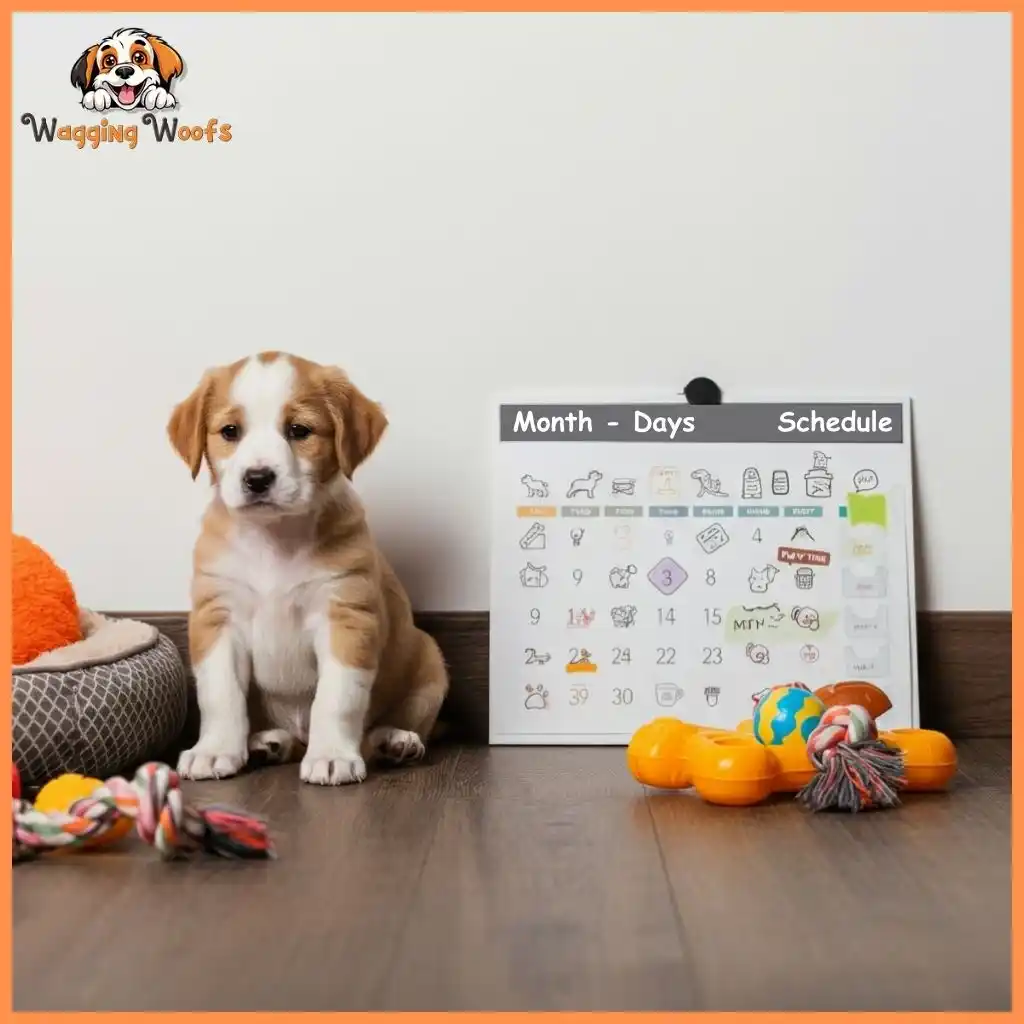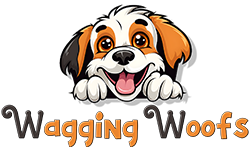Master Your Puppy Schedule 8 Weeks: Ultimate Guide to Success
Buying a new puppy is a great achievement but it comes with its own challenges. Puppies need to be consistent in their routines and that is the reason why having a timetable for them is fundamental to their development, training, and overall happiness.
This ultimate guide will assist you whether it is your first time as a pet parent or how you can combine your busy schedule with taking care of a puppy. From puppy schedule 8 weeks to all the way 13 to 17 Weeks Puppy Schedules.
At the end of this blog post, you will have all the information you require to develop and implement the perfect schedule from an 8 week old dog routine to options designed for older dogs. Additionally, you will find out useful tips and sample schedules suitable for any age and lifestyle.
Discover how Librela can relieve hip dysplasia and keep your dog comfortable and active.
Reasons Why Your Puppy Needs a Schedule?
Stability and Faster Training
Puppies are creatures of habit; therefore, having regularity in their daily schedules helps them establish stability in their lives. Training becomes faster when they have predictable timetables as they understand what should be expected at what time hence reducing uncontrollable behaviors such as barking or biting on leash.
Feeding and Potty Schedules
Right after puppies eat or drink or wake up, they usually have to go to the toilet. A schedule prevents inside accidents and teaches your dog when and where it should do its thing.
Ideal for Working People
For working professionals, a consistent routine keeps their puppy happy and healthy even on busy days. Whether it’s early morning walks or hiring a pet sitter in the afternoon, a regular schedule that is designed for busy pet owners can be everything.
Are you worried about the oral health of your dog? Then you must read this piece of content that discusses Coconut Oil for Dogs’ Teeth in detail and how it can benefit their oral hygiene.
The Ideal Puppy Schedule 8 Weeks
Most dogs enter into new homes at the age of eight weeks. At that time, your dog is adapting to its environment, so you need to create a pattern.

What to Include in Puppy Schedule 8 Weeks
- Feeding Times: 4 evenly spaced meals per day.
- Potty Breaks: After eating, drinking, napping, or playing.
- Playtime: Quick bits of supervised fun to help them use up energy.
- Training Sessions: Start with simple commands like “sit” or “come.”
- Sleep: Puppies require approximately 18-20 hours of sleep daily.
A Sample 8-Week Puppy Schedule
- 7:00 AM – Morning potty break and breakfast.
- 7:30 AM– Playtime or walk.
- 8:30 AM– Nap time.
- 10:00 AM– Lunchtime.
- 11:00 AM – Training and a little bit of playtime.
- 12:00 PM – Nap Hour
- 2:00 PM – Snack break
- 2:30 PM– Tiny play or walk around the block
- 4:30 PM– Supper/loo visit
- 5:00 PM– Calm bonding (snuggle or grooming)
- 7:00 PM – Last loo before bed
Does your canine suffer from constipation? Then you might find this blog post very helpful that covers Coconut Oil for Dog Constipation, a natural solution for your furry friend.
Sample Schedules for Other Puppy Ages

9 Weeks Puppy Schedule
Your puppy is becoming more active at this stage, therefore extend both play and training sessions by a few minutes but maintain consistency with his nap times. You may also consider introducing crate training during naps and bedtime periods.
Puppy Schedule for 12 Weeks (3 Months)
Your puppy will be well equipped to handle longer walks by 12 weeks as well as comprehend more advanced commands. Reduce feeding to 3 meals per day and take outside breaks for potty training.
Check out our PAWSOME Merch.
Curious about the risks of dogs eating cat food? Learn about the potential complications and get tips to keep your pets safe and healthy.
13 to 17 Weeks Puppy Schedules
At this age, your puppy’s daily routine starts to look more like that of an adult dog. This is also a crucial time for socialization, make sure to expose your puppy to other dogs, people, and different environments to help prevent behavioral issues in the future.
Here’s a sample schedule for a 15 week old puppy:
- Morning Routine (7:00 AM – 9:00 AM): Breakfast, potty break, and a long walk.
- Midday (12:00 PM – 2:00 PM): Lunch, another potty break, and nap time.
- Afternoon (4:00 PM – 6:00 PM): Training session, playtime; gradually decrease nap durations.
- Evening (8:00 PM – Bedtime): Final meal and winding down activities.
6 Month Old Puppy Schedule
At 6 months, your puppy will require more exercise and mental stimulation. Shift to feeding them 2 meals a day. Extend exercise sessions to 30 minutes or more, incorporating interactive toys and puzzles.
If your dog is experiencing heart issues, an echocardiogram can help diagnose the problem. Discover the cost of this important procedure and how it can benefit your pet’s health.
Customizing Your Canine’s Routine
Every dog is unique, so your dog’s schedule should be adaptable to their individual needs.
Tailoring Schedules for Working Owners
For working professionals, it may be necessary to modify their routine by:
- Hiring a dog walker or sitter for midday potty breaks.
- Providing engaging enrichment toys, like a Kong, during busy times.
- Creating a puppy schedule template to maintain consistency.
Adjustments for Growth and Temperament
Some puppies may require more naptime, while energetic breeds might need extra play sessions. Pay attention to your puppy’s signals and make adjustments as needed.
Common mistakes in following a puppy schedule?
Common mistakes when following a puppy schedule include skipping potty breaks, which can lead to accidents. Overstimulating your puppy with excessive playtime is another issue. Additionally, not providing enough sleep can result in cranky or hyperactive behavior.
Start Your Puppy’s Perfect Routine Today
Establishing a structured routine is essential for raising a well-behaved and happy puppy. By implementing an 8-week puppy schedule, you’re laying the groundwork for your furry friend’s long-term success. As they grow, be sure to adjust their routines, and remember to infuse plenty of love, patience, and consistency into your approach.
Do you have your own tips or questions about creating a puppy schedule? We’d love to hear from you in the comments below!
Thinking about adding a French and English Bulldog mix to your family? Find out if these lovable puppies are right for you and learn about their unique traits and needs.
Conclusion
Every dog is unique and may have varying needs regarding their daily routine. It’s crucial to pay attention to your dog’s signals and modify their schedule as needed, whether that means adding more naps or increasing playtime. By prioritizing consistency, love, and patience in your routines, you’ll foster a happy and well-behaved pup. With this guide, you can develop a tailored schedule for every stage of your puppy’s life—from 8 weeks all the way into their senior years. Enjoy the journey with your furry companion!
Is your dog suffering from Cushing’s disease? Learn how Melatonin can help manage symptoms of Cushing’s disease and provide a natural solution for your furry friend’s well-being.
Check out our PAWSOME Merch.
FAQs About Puppy Schedules 8 Weeks
1. What is a good schedule for a puppy?
A good puppy schedule features regular feeding times, potty breaks, play sessions, training, and ample sleep. It should be consistent yet flexible enough to meet your puppy’s needs and age.
2. What to do with a puppy all day?
Puppies typically spend their days sleeping, eating, and playing. Balance active times with rest and enrichment activities to keep them content and well-behaved.
3. How to manage a morning routine with a puppy?
Kick off the day with a quick potty break, followed by breakfast and some light play or a walk.
Sources







